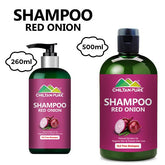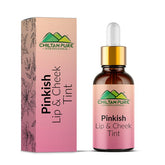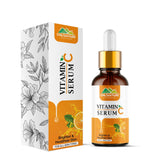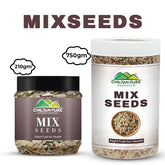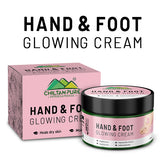Beetroots are rich in nutrients, including antioxidants that prevent cell oxidation and lower the risk of heart disease. The betalains, a powerful antioxidant that gives beets their bright color, are only found in a select few crops. The anti-inflammatory properties of betalains may help in the prevention of cancer and other diseases.
Beetroot has vitamin C, that inhibits the production of excess melanin, which helps to treat the hyperpigmentation issue. The same nutrient is also in responsible in healing all of your cells and stimulating the production of collagen, which contributes to the overall healthy appearance of your skin. Skin lightening with beetroot is effective. Antioxidants found in it are believed to revitalize the area around the eyes and diminish dark circles.
Beetroot removes dead skin cells from your scalp and any excess oil protecting your scalp from getting dandruff, thus promoting healthy hair growth. If there isn't enough oil production in your scalp, your hair becomes dry and dead, leading to dandruff. Beetroot prevents dandruff and gives your hair shine.
 Carotenoids and vitamin A found in beets provide internal and external health benefits. They also contain a significant quantity of lutein, a potent antioxidant that fights free radicals and may aid in the antioxidant protection of skin.
Improve Skin Health
If you are wondering what are beetroot benefits the skin, here's your answer. Beetroot ingestion has been found to prevent skin cancer. Also, beets contain vitamin A which maintains healthy mucous membranes and improves skin health.
Beets are also good sources of vitamin C that protects the skin from the harmful effects of UV radiation. Adequate vitamin C levels also minimize the formation of raised scars.
Beneficial During Pregnancy
Beetroots are beneficial for pregnant women, primarily because of their nitrate content. Beets are also rich in folic acid, which is a good reason for expectant mothers to include them in their diet. A baby's neural tube abnormalities can be avoided with folic acid.
Lower Blood Pressure
Carotenoids and vitamin A found in beets provide internal and external health benefits. They also contain a significant quantity of lutein, a potent antioxidant that fights free radicals and may aid in the antioxidant protection of skin.
Improve Skin Health
If you are wondering what are beetroot benefits the skin, here's your answer. Beetroot ingestion has been found to prevent skin cancer. Also, beets contain vitamin A which maintains healthy mucous membranes and improves skin health.
Beets are also good sources of vitamin C that protects the skin from the harmful effects of UV radiation. Adequate vitamin C levels also minimize the formation of raised scars.
Beneficial During Pregnancy
Beetroots are beneficial for pregnant women, primarily because of their nitrate content. Beets are also rich in folic acid, which is a good reason for expectant mothers to include them in their diet. A baby's neural tube abnormalities can be avoided with folic acid.
Lower Blood Pressure
 Beetroot juice was found to lower blood pressure in four weeks. This is because of nitrates, which the body converts into nitric oxide, and the blood vessels expand. Also, consuming beetroot juice regularly can prolong these good effects.
Improve Heart Health
The nitrates in beets lower blood pressure and may reduce the risk of heart disease and strokes.
Even one week of regular beetroot juice intake can increase blood pressure and endurance in older people at risk for heart failure.
Prevent Cancer
Beetroot extract may have the potential to prevent cancers of the breast and prostate. This can be attributed to the presence of betanin (a form of betalain) in beetroot.
Promote Liver Health
Beetroot juice was found to lower blood pressure in four weeks. This is because of nitrates, which the body converts into nitric oxide, and the blood vessels expand. Also, consuming beetroot juice regularly can prolong these good effects.
Improve Heart Health
The nitrates in beets lower blood pressure and may reduce the risk of heart disease and strokes.
Even one week of regular beetroot juice intake can increase blood pressure and endurance in older people at risk for heart failure.
Prevent Cancer
Beetroot extract may have the potential to prevent cancers of the breast and prostate. This can be attributed to the presence of betanin (a form of betalain) in beetroot.
Promote Liver Health
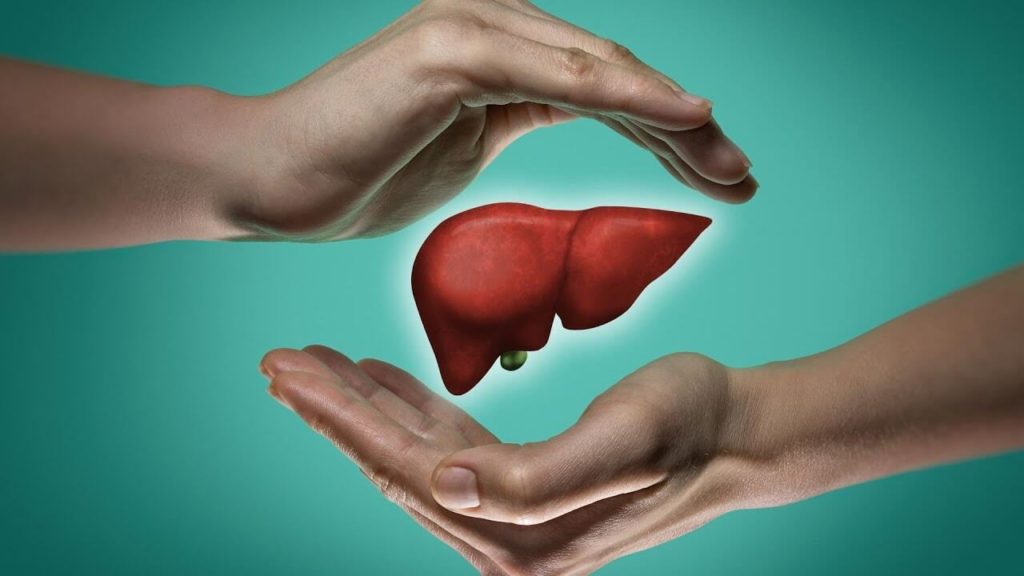 The presence of calcium, betaine, vitamins, iron, and antioxidants keeps beets among the best liver foods.
Pectin, a fibre found in beets, is known to assist the body get rid of toxins and can help clear the toxins that have been taken out of the liver, preventing their re-entry into the body.
The liver also contains zinc and copper, which can protect the liver cells from oxidative stress.
Boost Energy Levels
Beetroot makes the muscles more fuel-efficient, thereby enhancing stamina; eating beetroot gave runners a modest edge over others who didn't – which amounted to an average of 41 seconds in a 5k run. The reason is beetroot's ability to enhance the oxygen-carrying capacity of the blood, and it also reduces the amount of oxygen the muscles need to perform optimally.
Fights Inflammation
Beetroot, especially in the juice form, was effective in treating inflammation; beetroot extract could treat inflammation in the kidneys.
Promote Brain Health
Beetroots enhance brain flexibility by boosting the ability to grasp the cortex's oxygen, which is the part of the brain that is usually affected in the early stages of dementia.
Control Blood Sugar Levels
The presence of calcium, betaine, vitamins, iron, and antioxidants keeps beets among the best liver foods.
Pectin, a fibre found in beets, is known to assist the body get rid of toxins and can help clear the toxins that have been taken out of the liver, preventing their re-entry into the body.
The liver also contains zinc and copper, which can protect the liver cells from oxidative stress.
Boost Energy Levels
Beetroot makes the muscles more fuel-efficient, thereby enhancing stamina; eating beetroot gave runners a modest edge over others who didn't – which amounted to an average of 41 seconds in a 5k run. The reason is beetroot's ability to enhance the oxygen-carrying capacity of the blood, and it also reduces the amount of oxygen the muscles need to perform optimally.
Fights Inflammation
Beetroot, especially in the juice form, was effective in treating inflammation; beetroot extract could treat inflammation in the kidneys.
Promote Brain Health
Beetroots enhance brain flexibility by boosting the ability to grasp the cortex's oxygen, which is the part of the brain that is usually affected in the early stages of dementia.
Control Blood Sugar Levels
 Beetroot juice for diabetes is a balanced food that contains necessary dietary fibre. Juice is also bursting with potassium, iron, and mineral goodness, all of which are necessary for the body to generate energy. The low glycemic index of beet juice makes it practical for treating diabetes. Additionally, the juice contains a lot of betalain and neo-betalain, compounds that lower blood sugar and glucose levels.
Aid Digestion
Regular consumption of beet or beet products improves Digestion and blood quality. White beets can also open the obstructions of the liver and spleen. Red beets may help treat illnesses related to the digestive system and blood.
Reduce Bad Cholesterol Levels
Beetroot includes glycosides, which reduce cholesterol levels by promoting excretion and minimizing the risk of cardiovascular disease. Beets can lower blood pressure as well.
Improve Sexual Health
It is believed that beetroot has been used as an aphrodisiac since Roman times. Beets contain reasonable amounts of Boron and are directly linked to the production of sex hormones. Beets are also relaxing. The betaine in beets relaxes your mind, and tryptophan contributes to happiness – both of which can help you get in the mood.
May Help Prevent Osteoporosis
Beets get converted into nitric oxide in the body. Nitric oxide can help prevent certain lifestyle-related diseases, including osteoporosis.
Beets contain some calcium, and some believe they may also help strengthen bones and teeth. Beetroots are powerful vegetables that deserve a place in your daily diet. Though the most common variety is the red beet, the veggie is also available in other types.
Beetroot juice for diabetes is a balanced food that contains necessary dietary fibre. Juice is also bursting with potassium, iron, and mineral goodness, all of which are necessary for the body to generate energy. The low glycemic index of beet juice makes it practical for treating diabetes. Additionally, the juice contains a lot of betalain and neo-betalain, compounds that lower blood sugar and glucose levels.
Aid Digestion
Regular consumption of beet or beet products improves Digestion and blood quality. White beets can also open the obstructions of the liver and spleen. Red beets may help treat illnesses related to the digestive system and blood.
Reduce Bad Cholesterol Levels
Beetroot includes glycosides, which reduce cholesterol levels by promoting excretion and minimizing the risk of cardiovascular disease. Beets can lower blood pressure as well.
Improve Sexual Health
It is believed that beetroot has been used as an aphrodisiac since Roman times. Beets contain reasonable amounts of Boron and are directly linked to the production of sex hormones. Beets are also relaxing. The betaine in beets relaxes your mind, and tryptophan contributes to happiness – both of which can help you get in the mood.
May Help Prevent Osteoporosis
Beets get converted into nitric oxide in the body. Nitric oxide can help prevent certain lifestyle-related diseases, including osteoporosis.
Beets contain some calcium, and some believe they may also help strengthen bones and teeth. Beetroots are powerful vegetables that deserve a place in your daily diet. Though the most common variety is the red beet, the veggie is also available in other types.
Nutritional facts of beetroot
A 100g serving of raw beetroot provides.- 36 kcals/154KJ
- 7g protein
- 1g fat
- 6g carbs
- 5g Fibre
- 380mg potassium
- 150mcg folate
Benefits of Beetroot
Delay Signs of Premature Aging
 Carotenoids and vitamin A found in beets provide internal and external health benefits. They also contain a significant quantity of lutein, a potent antioxidant that fights free radicals and may aid in the antioxidant protection of skin.
Improve Skin Health
If you are wondering what are beetroot benefits the skin, here's your answer. Beetroot ingestion has been found to prevent skin cancer. Also, beets contain vitamin A which maintains healthy mucous membranes and improves skin health.
Beets are also good sources of vitamin C that protects the skin from the harmful effects of UV radiation. Adequate vitamin C levels also minimize the formation of raised scars.
Beneficial During Pregnancy
Beetroots are beneficial for pregnant women, primarily because of their nitrate content. Beets are also rich in folic acid, which is a good reason for expectant mothers to include them in their diet. A baby's neural tube abnormalities can be avoided with folic acid.
Lower Blood Pressure
Carotenoids and vitamin A found in beets provide internal and external health benefits. They also contain a significant quantity of lutein, a potent antioxidant that fights free radicals and may aid in the antioxidant protection of skin.
Improve Skin Health
If you are wondering what are beetroot benefits the skin, here's your answer. Beetroot ingestion has been found to prevent skin cancer. Also, beets contain vitamin A which maintains healthy mucous membranes and improves skin health.
Beets are also good sources of vitamin C that protects the skin from the harmful effects of UV radiation. Adequate vitamin C levels also minimize the formation of raised scars.
Beneficial During Pregnancy
Beetroots are beneficial for pregnant women, primarily because of their nitrate content. Beets are also rich in folic acid, which is a good reason for expectant mothers to include them in their diet. A baby's neural tube abnormalities can be avoided with folic acid.
Lower Blood Pressure
 Beetroot juice was found to lower blood pressure in four weeks. This is because of nitrates, which the body converts into nitric oxide, and the blood vessels expand. Also, consuming beetroot juice regularly can prolong these good effects.
Improve Heart Health
The nitrates in beets lower blood pressure and may reduce the risk of heart disease and strokes.
Even one week of regular beetroot juice intake can increase blood pressure and endurance in older people at risk for heart failure.
Prevent Cancer
Beetroot extract may have the potential to prevent cancers of the breast and prostate. This can be attributed to the presence of betanin (a form of betalain) in beetroot.
Promote Liver Health
Beetroot juice was found to lower blood pressure in four weeks. This is because of nitrates, which the body converts into nitric oxide, and the blood vessels expand. Also, consuming beetroot juice regularly can prolong these good effects.
Improve Heart Health
The nitrates in beets lower blood pressure and may reduce the risk of heart disease and strokes.
Even one week of regular beetroot juice intake can increase blood pressure and endurance in older people at risk for heart failure.
Prevent Cancer
Beetroot extract may have the potential to prevent cancers of the breast and prostate. This can be attributed to the presence of betanin (a form of betalain) in beetroot.
Promote Liver Health
 The presence of calcium, betaine, vitamins, iron, and antioxidants keeps beets among the best liver foods.
Pectin, a fibre found in beets, is known to assist the body get rid of toxins and can help clear the toxins that have been taken out of the liver, preventing their re-entry into the body.
The liver also contains zinc and copper, which can protect the liver cells from oxidative stress.
Boost Energy Levels
Beetroot makes the muscles more fuel-efficient, thereby enhancing stamina; eating beetroot gave runners a modest edge over others who didn't – which amounted to an average of 41 seconds in a 5k run. The reason is beetroot's ability to enhance the oxygen-carrying capacity of the blood, and it also reduces the amount of oxygen the muscles need to perform optimally.
Fights Inflammation
Beetroot, especially in the juice form, was effective in treating inflammation; beetroot extract could treat inflammation in the kidneys.
Promote Brain Health
Beetroots enhance brain flexibility by boosting the ability to grasp the cortex's oxygen, which is the part of the brain that is usually affected in the early stages of dementia.
Control Blood Sugar Levels
The presence of calcium, betaine, vitamins, iron, and antioxidants keeps beets among the best liver foods.
Pectin, a fibre found in beets, is known to assist the body get rid of toxins and can help clear the toxins that have been taken out of the liver, preventing their re-entry into the body.
The liver also contains zinc and copper, which can protect the liver cells from oxidative stress.
Boost Energy Levels
Beetroot makes the muscles more fuel-efficient, thereby enhancing stamina; eating beetroot gave runners a modest edge over others who didn't – which amounted to an average of 41 seconds in a 5k run. The reason is beetroot's ability to enhance the oxygen-carrying capacity of the blood, and it also reduces the amount of oxygen the muscles need to perform optimally.
Fights Inflammation
Beetroot, especially in the juice form, was effective in treating inflammation; beetroot extract could treat inflammation in the kidneys.
Promote Brain Health
Beetroots enhance brain flexibility by boosting the ability to grasp the cortex's oxygen, which is the part of the brain that is usually affected in the early stages of dementia.
Control Blood Sugar Levels
 Beetroot juice for diabetes is a balanced food that contains necessary dietary fibre. Juice is also bursting with potassium, iron, and mineral goodness, all of which are necessary for the body to generate energy. The low glycemic index of beet juice makes it practical for treating diabetes. Additionally, the juice contains a lot of betalain and neo-betalain, compounds that lower blood sugar and glucose levels.
Aid Digestion
Regular consumption of beet or beet products improves Digestion and blood quality. White beets can also open the obstructions of the liver and spleen. Red beets may help treat illnesses related to the digestive system and blood.
Reduce Bad Cholesterol Levels
Beetroot includes glycosides, which reduce cholesterol levels by promoting excretion and minimizing the risk of cardiovascular disease. Beets can lower blood pressure as well.
Improve Sexual Health
It is believed that beetroot has been used as an aphrodisiac since Roman times. Beets contain reasonable amounts of Boron and are directly linked to the production of sex hormones. Beets are also relaxing. The betaine in beets relaxes your mind, and tryptophan contributes to happiness – both of which can help you get in the mood.
May Help Prevent Osteoporosis
Beets get converted into nitric oxide in the body. Nitric oxide can help prevent certain lifestyle-related diseases, including osteoporosis.
Beets contain some calcium, and some believe they may also help strengthen bones and teeth. Beetroots are powerful vegetables that deserve a place in your daily diet. Though the most common variety is the red beet, the veggie is also available in other types.
Beetroot juice for diabetes is a balanced food that contains necessary dietary fibre. Juice is also bursting with potassium, iron, and mineral goodness, all of which are necessary for the body to generate energy. The low glycemic index of beet juice makes it practical for treating diabetes. Additionally, the juice contains a lot of betalain and neo-betalain, compounds that lower blood sugar and glucose levels.
Aid Digestion
Regular consumption of beet or beet products improves Digestion and blood quality. White beets can also open the obstructions of the liver and spleen. Red beets may help treat illnesses related to the digestive system and blood.
Reduce Bad Cholesterol Levels
Beetroot includes glycosides, which reduce cholesterol levels by promoting excretion and minimizing the risk of cardiovascular disease. Beets can lower blood pressure as well.
Improve Sexual Health
It is believed that beetroot has been used as an aphrodisiac since Roman times. Beets contain reasonable amounts of Boron and are directly linked to the production of sex hormones. Beets are also relaxing. The betaine in beets relaxes your mind, and tryptophan contributes to happiness – both of which can help you get in the mood.
May Help Prevent Osteoporosis
Beets get converted into nitric oxide in the body. Nitric oxide can help prevent certain lifestyle-related diseases, including osteoporosis.
Beets contain some calcium, and some believe they may also help strengthen bones and teeth. Beetroots are powerful vegetables that deserve a place in your daily diet. Though the most common variety is the red beet, the veggie is also available in other types.
Frequently Asked Questions (FAQs)
Does beet cause a rise in blood sugar?
No. Beetroots are rich in phytonutrients that have been shown to regulate glucose and insulin.What are the side effects of eating beetroot?
Beet is safe for most people in controlled portions. Beets sometimes make urine or stools pink or red, which is considered primarily harmless in most cases. Eating too many beets might make kidney disease worse.Do I need to worry about red beetroot pigments found in urine or stool after eating?
Red beetroot pigments in urine or stool are called beeturia, which is considered primarily harmless in most cases.Is beetroot safe for everyone?
For some people, eating beetroot may induce beeturia, a red or pink colour in the urine or stool, and it is harmless! Beet greens and, to a lesser extent, the roots contain high levels of a natural compound called oxalate. Individuals with a history of oxalate-containing kidney stones should avoid over-consuming high oxalate foods like beetroot.
Tags:




![Red Onion Oil 🧅 Reduces Hair Fall & Accelerates Hair Regrowth [پیاز کا تیل].. Trending.... 🔥 - ChiltanPure](http://chiltanpure.com/cdn/shop/products/red-onion-oil-reduces-hair-fall-amp-accelerates-hair-regrowth-piaz-ka-til-trending-394813_165x.jpg?v=1707464619)
![Red Onion Oil 🧅 Reduces Hair Fall & Accelerates Hair Regrowth [پیاز کا تیل].. Trending.... 🔥 - ChiltanPure](http://chiltanpure.com/cdn/shop/products/red-onion-oil-reduces-hair-fall-amp-accelerates-hair-regrowth-piaz-ka-til-trending-329640_165x.jpg?v=1708127491)
